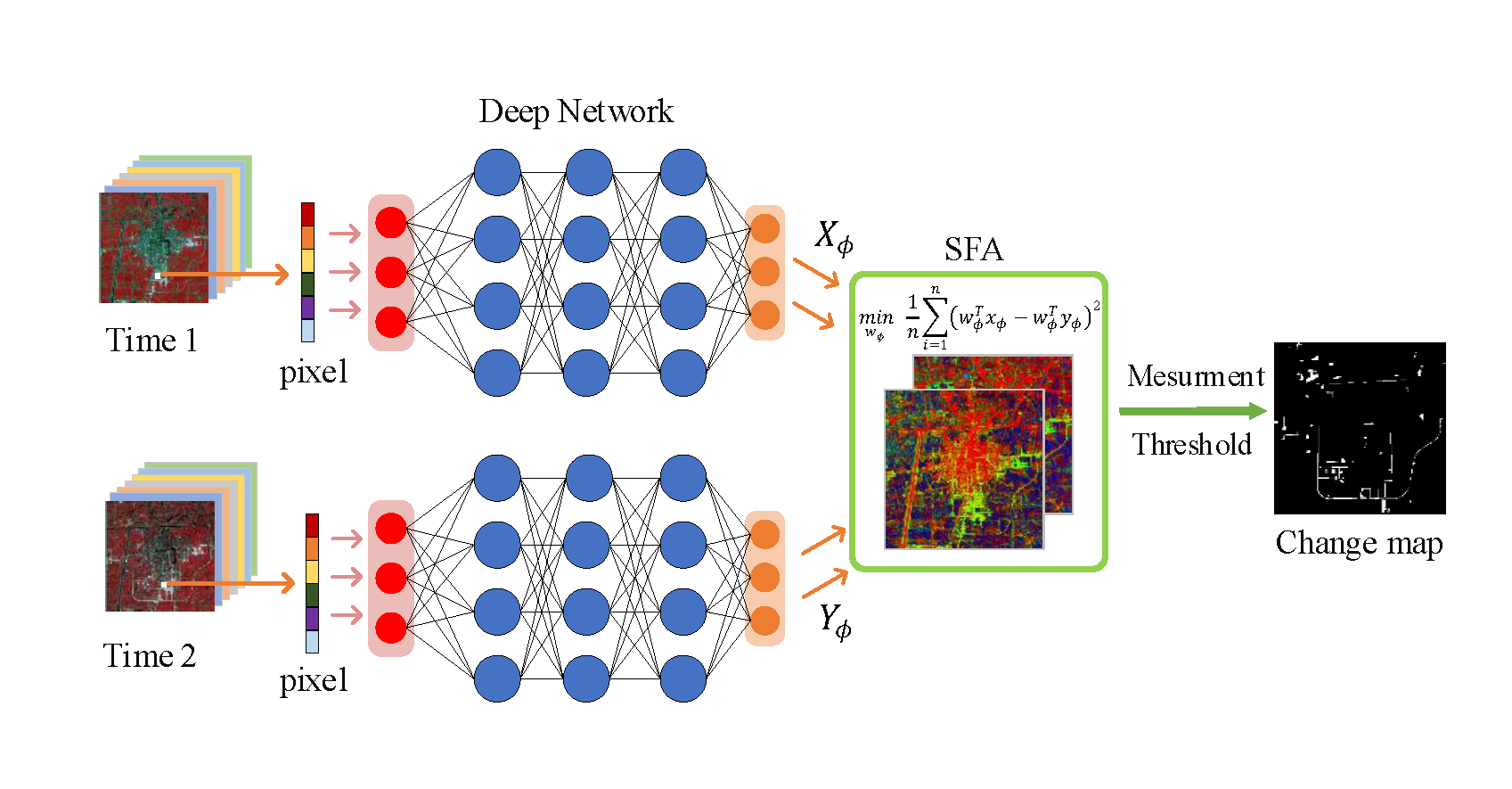Unsupervised Deep Slow Feature Analysis for Change Detection in Multi-Temporal Remote Sensing Images
Change detection has been a hotspot in remote sensing technology for a long time. With the increasing availability of multi-temporal remote sensing images, numerous change detection algorithms have been proposed. Among these methods, image transformation methods with feature extraction and mapping could effectively highlight the changed information and thus has better change detection performance. However, changes of multi-temporal images are usually complex, existing methods are not effective enough. In recent years, deep network has shown its brilliant performance in many fields including feature extraction and projection. Therefore, in this paper, based on deep network and slow feature analysis (SFA) theory, we proposed a new change detection algorithm for multi-temporal remotes sensing images called Deep Slow Feature Analysis (DSFA). In DSFA model, two symmetric deep networks are utilized for projecting the input data of bi-temporal imagery. Then, the SFA module is deployed to suppress the unchanged components and highlight the changed components of the transformed features. The CVA pre-detection is employed to find unchanged pixels with high confidence as training samples. Finally, the change intensity is calculated with chi-square distance and the changes are determined by threshold algorithms. The experiments are performed on two real-world datasets and a public hyperspectral dataset. The visual comparison and quantitative evaluation have both shown that DSFA could outperform the other state-of-the-art algorithms, including other SFA-based and deep learning methods.
PDF Abstract

 100DOH
100DOH